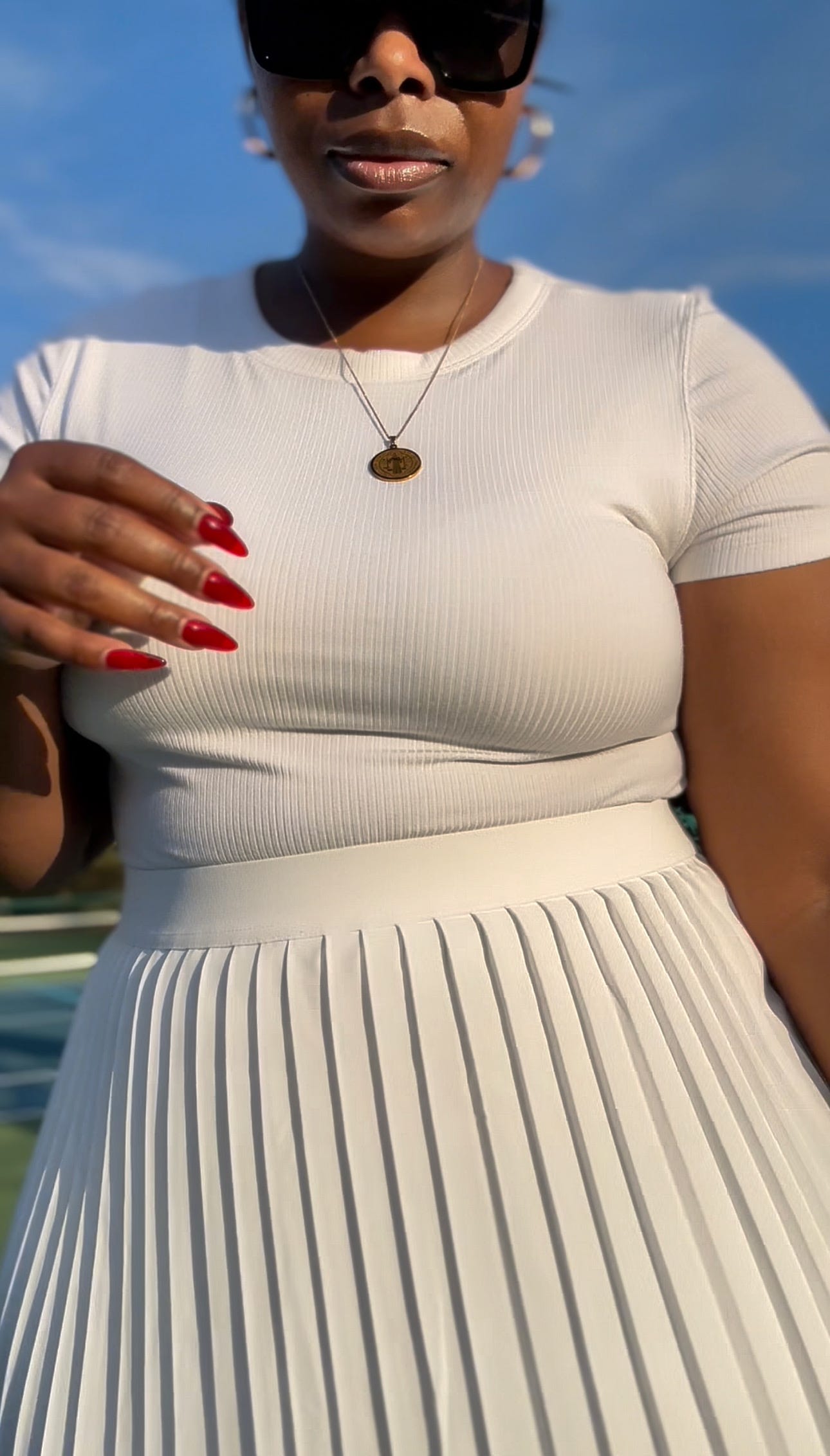The other day, something happened that really made me think about the whole “bossy” label, especially when it comes to women—Black women in particular. You know when something small happens, but it sticks with you for days? Yeah, it was one of those moments.
So, I’m at my very first Pickleball lesson (I know, I’m late to the trend). It was fun! I was out there with a small group of people, trying to figure out how to not embarrass myself on the court. After we wrapped up, the instructor kindly offered to take a picture of us. Great! I handed him my phone and casually asked if he could hold it vertically. He already had two other people’s phones in his hands, so I said I can wait, but he waved me off like “Nah, I got this.”
Well… he didn’t have it. He held my phone horizontally instead (I know—nothing major, but I am not a fan of horizontal pictures). He then asked if we were good and I replied, “No, I wanted it vertically.” That’s when I heard it—a voice from the group said something, and the only word I clearly caught was bossy.
Now, here’s the thing—I didn’t even catch the whole sentence, but that one word? It stuck. It landed in a way that made me sit with it for a while, and the more I thought about it, the more I started to unravel just how loaded that word can be.
We’ve all heard it, right? Bossy. It’s one of those words that just lingers in the air, especially when it’s directed at women. And let’s be real—when you add race into the equation, it gets even more complicated. Black women, in particular, seem to get hit with that label more frequently, and often for the smallest things.
But what’s wild is that all I was doing was restating my preference. I didn’t yell. I wasn’t rude. I didn’t give a 10-minute speech on why I like vertical photos. I just asked for what I wanted. Yet somehow, in that moment, that was enough to be labeled bossy. And it got me thinking: Why is it that when women simply ask for things the way we want them, it’s seen as too much?
And that’s when it hit me—“bossy” is more than just a word; it’s an insult. It’s a word that tries to shrink you, to make you feel like you’re stepping out of line for knowing what you want or for standing firm. It implies that you're being too much—too direct, too assertive—when really, you’re just being clear.
Think about it. When was the last time you heard the word “bossy” used to describe a man? I’ll wait…
Exactly. It’s rare. When men are direct and clear about what they want, they get praised. It’s called leadership. Confidence. You hear things like, “He knows what he wants.” But when women, especially Black women, do the same thing? Suddenly, we’re bossy or difficult.
It’s frustrating because we’re expected to sugarcoat our needs or soften our words to avoid making people uncomfortable. And that’s exhausting. Why should asking for a vertical picture feel like I’m walking on eggshells? Why is it seen as rude or demanding for me to simply express a preference?
This is exactly why the word “bossy” feels so insulting. It’s not just some offhand comment. It’s a quiet way to undermine women, to make us second-guess whether we even have the right to be assertive. It’s like society is sending this message: “Be confident, but don’t overdo it.” This double standard shows up time and time again. Men are celebrated as leaders when they’re assertive, but women are expected to dial it back, to avoid being labeled as ‘too much.’
Could I Have Been More Empathetic? Sure. But Should I Have to Be?
Now, let’s be real: Could I have been more empathetic in that moment? Of course. The instructor was juggling three phones, trying to keep everyone happy. Maybe he was flustered, and I didn’t need to correct him so directly. Maybe I could’ve said something like, “I see you’ve got a lot going on, but when you get a sec, could you take mine vertically?” Sure, that would’ve been a more soft and polite way to handle.
But here’s the thing—why do we always feel like we have to soften or reframe our needs just to be heard? Why is there this underlying pressure to be extra careful, even when what we’re asking for is perfectly reasonable? Correcting someone respectfully isn’t the same thing as being bossy.
And just so that I’m clear: this moment isn’t just about a picture being taken the wrong way. It’s about the larger narrative that surrounds how women are expected to move through the world. There’s this unspoken rule that we need to be easygoing, accommodating, and flexible, even when we know what we want. And if we dare to express those preferences, it can be seen as pushy or overbearing.
But let’s think about that for a second. If a man had made the same request, would anyone have blinked? No. Would the word “bossy” have even entered the conversation? Probably not. He’d just be seen as someone who knows what he wants. So why do women, particularly Black women, get this label so easily?
This is the question I keep coming back to—why is assertiveness in women so often seen as a negative, while in men, it’s praised?
The more I sit with this, the more I realize—it’s time to change the narrative. If being clear about what I want makes me “bossy,” maybe that’s something I need to reclaim. Maybe “bossy” is just another way of saying I’m confident, I know what I want, and I’m not afraid to express it.
Even as I write this, though, I catch myself wanting to add a disclaimer like, Of course, when I’m direct, I’m not being rude. And that’s the tricky part—feeling the need to soften my words, to reassure people that being clear doesn’t mean I’m being unkind. Why do we, as women feel the need to soften our assertiveness? Why do we have to make sure our confidence comes across as gentle?
It’s like there’s this constant pressure to find a balance—be strong, but not too strong. Be confident, but not in a way that makes others uncomfortable. It’s exhausting, always having to consider how our words will be received, as if simply asking for what we want is somehow too much.
But the truth is, there’s nothing wrong with being direct. It doesn’t make me bossy—it makes me someone who knows her own mind, someone who’s clear about her needs. And if that’s seen as “too much,” that’s not my burden to carry. I’m learning that standing up for myself isn’t something to apologize for—it’s something to embrace.
Again, at the end of the day, this isn’t just about a picture. It’s about a bigger issue—the way women are often encouraged to take up less space, to speak softly, to not push too hard. We’re taught to be accommodating, to make sure others are comfortable, even at the expense of our own needs. And that’s something we need to unlearn.
Being clear about what you want doesn’t make you bossy. It makes you self-assured. It means you value yourself enough to not settle for less than what you ask for. And that’s a strength.
So, the next time someone calls me bossy, I think I’ll take it as a compliment. It means I’m not afraid to speak up for what I want, and that’s something to be proud of—not something to shy away from.






Say what you need, it’s your right.
Appreciate you sharing this! Very insightful.